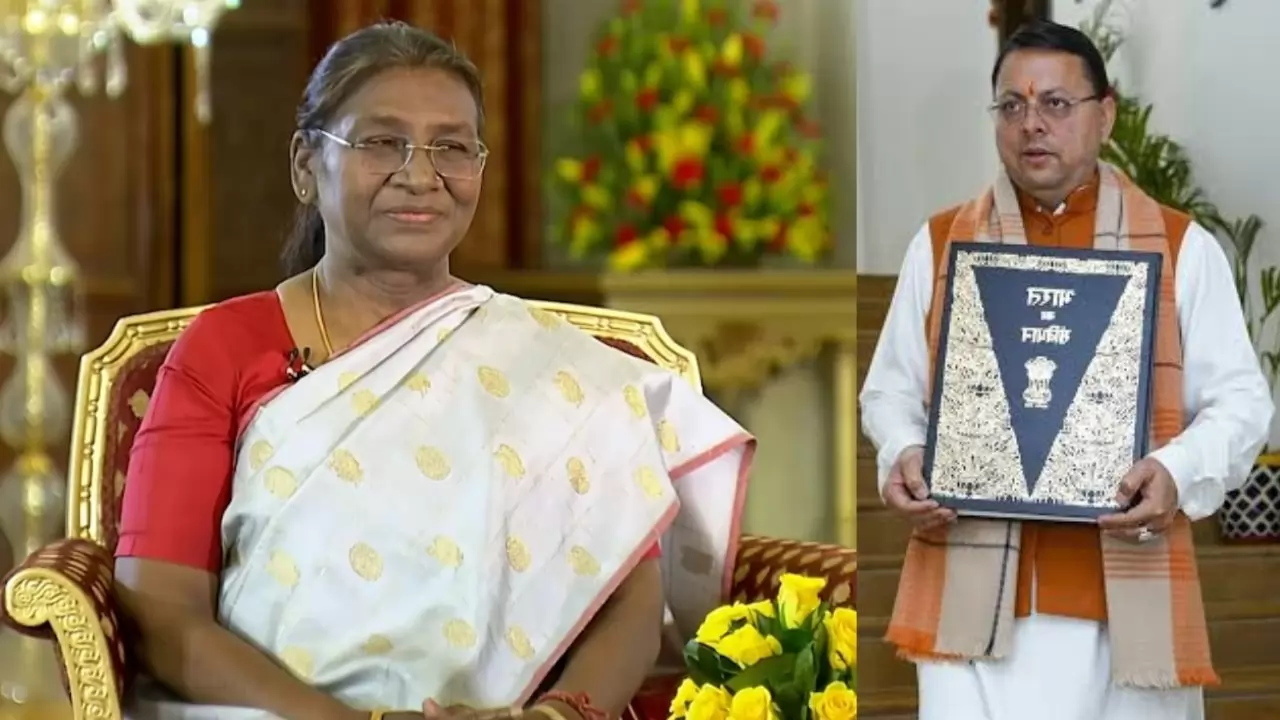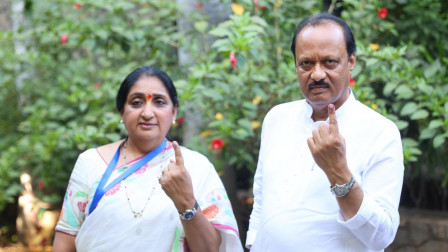
X
The Uttarakhand Bill 2024 under the Uniform Civil Code has been approved by President Droupadi Murmu. The Himalayan state of Uttarakhand would then issue a notification, and the law would be enacted as a result. With the implementation of the UCC Act, Uttarakhand is poised to become the nation's first state. The secretary to Chief Minister Pushkar Singh Dhami, Shailesh Bagauli, confirmed the development to the media, saying, "The President has given her sanction to the law, and now it will be brought back to Uttarakhand."
After then, the state government would notify it, and it would become a law. The Bill will shortly be forwarded for printing. The five-member draft panel sent the 740-page document to the chief minister on February 2; the cabinet approved it on February 4. The measure was introduced on February 6 and approved on February 7 in the Uttarakhand assembly.

The bill was accepted by Uttarakhand Governor Lt Gen Gurmit Singh (Retd) on February 28, this year, and it was put on hold pending approval from the President. The rationale is that UCC falls under the Concurrent List and needs the President's approval. The potential of the bill to curb 'harmful practices, especially those targeting girls and women' was highlighted by Chief Minister Dhami. "The transformative influence the UCC will have on society is through fostering women's equality and self-reliance," he said.
Before the 2020 state elections, Dhami had promised to bring the UCC to Uttarakhand if re-elected, and the state government moved decisively to make good on this promise. In order to draft the UCC, a group headed by Justice Ranjana Prakash Desai held numerous public consultations. To finish the draft, the group held 72 sessions and collected input from over 2.3 lakh people, or 10% of the state's families.
The UCC Bill covers important topics like marriage, divorce, inheritance, and cohabitation in its seven schedules and 392 sections. The goal is to eradicate customs like talaq, halala, iddat, and polygamy, as well as safeguard the rights of unborn children and provide property rights for both male and female children.
Scheduled tribes in the state whose customary rights are safeguarded by Section 21 of the Constitution are exempt from the UCC. Other measures include giving girls of all faiths the same age at marriage (18 years), requiring marriage and divorce to be registered within 60 days, and giving sons and daughters equal inheritance rights. The bill outlines the provisions pertaining to alimony and the maintenance that women must receive.
No marriage shall be regarded as void only because it was not recorded or because information in the memoranda contained errors, inconsistencies, or defects. Additionally, there is still a punishment for lying or ignoring the requirements to register for marriage and divorce. If someone knowingly fails to deliver the memoranda, they could face a fine of up to Rs 10,000. Making a false statement could result in a three-month jail sentence, a fine of Rs 25,000, or both.
After March 26, 2010, all marriages would need to be officially registered with the state within six months. On March 26, 2010, the Uttarakhand Compulsory Marriage Registration Act, 2010 went into force. Couples who got married before March 26, 2010, and at least one of the parties is from Uttarakhand, have the choice to register their marriage with the state.








Copyright © 2026 Top Indian News
